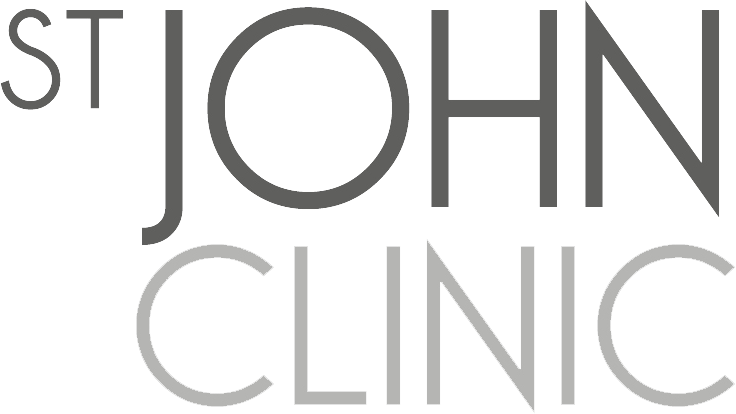
About Dr St John

Lady St John of Bletso MBChB MRCOG MBCAM
My motto is “correction, not change”. Many practitioners give the field of cosmetic medicine a bad name by failing to appreciate the aesthetic proportions of the face as a whole.
It is all too easy to focus on problem areas without due regard for what looks naturally youthful. We have all seen grotesquely blown up lips in women whose filler should have been used elsewhere, if at all. So too the “pillow cheeked” look – an attempt to puff out all wrinkling at the expense of the natural contours of the cheek.
We must objectively appraise the whole face and be prepared to say “no” to our clients whose requests, we feel, are not in their best interests. A good aesthetic practitioner will use Botox® and fillers safely and will not create an unnatural look. A great aesthetic practitioner, on the other hand, will examine the face as a whole at every consultation and will ask him/herself “what more can I do to beautify this person’s face?”
The reality, however, is that most of our clients have a limited budget. The following question therefore becomes fundamentally important; which treatment will give this client the “wow factor”? therefore representing the best value for their money? Most of us benefit from Botox® in key areas at any age. A skilled practitioner can manipulate muscle action by enhancing the muscles that lift and by downplaying those that promote sagging. Fillers correct lines and depressions safely and reversibly.
We practitioners must aim to turn back the clock, to take our clients back 10 years rather than to change them into someone different altogether. The greatest accolade is when, at the two week follow up, a client reports that their friends comment on how good they look without being able to fathom out why. We don’t always get it right first time, however. We cannot gauge muscle strength accurately in each and every client. This is why the 2 week follow up appointment is all important when we can critically assess the effect of our treatments, allowing us to correct when necessary. In so doing we continue to educate ourselves and to optimise our technique in the future.
Lady St John of Bletso MBChB MRCOG MBCAM
PSYCHOLOGY AND THE AESTHETIC MEDICINE INDUSTRY
Our perception of how we present ourselves to the world has an inevitable impact on our psychology, on our relationships with others and our own personal happiness and fulfilment. Historically, the pursuit of attractiveness for all living creatures has been motivated by finding a mate with whom to reproduce. For human beings in the modern world with ever more complex lives, the pursuit of attractiveness is perceived to aid us not only in ensnaring a mate, but in developing meaningful relationships with others. Studies have shown that attractive individuals have greater earning potential: in a world of great divide between the rich and the poor and as our lives become increasingly aspirational, the benefits of perceived attractiveness in modern society cannot be overestimated.
It’s important to consider the widely varying interpretations of perceived attractiveness between races. In a world of increasing international travel and integration, we aesthetic practitioners must continue to be open minded, focusing on our clients’ goals rather than conforming to our own social norms.
Beauty routines are universally accepted and important aspects of our daily lives. Daily make-up, shaving, waxing, hair treatments, diets, exercise routines, etc are means of projecting our chosen image to the world. It is well known that those that are depressed/psychologically impaired lose interest in their appearance. Taking care of ourselves and striving to present the best possible version of ourselves empowers us and optimises our mental health.
Aesthetic medicine, a relatively new specialty, continues to enjoy increasing popularity for all the reasons stated above. Potentially labelled as “trivial” in terms of importance within the general health arena, for the more holistically inclined medical practitioner, it is becoming widely appreciated that this specialty must be taken seriously. Credit must be given to aesthetic medical treatments that, in experienced hands, have such a positive impact on our lives.
One must appreciate that though many aesthetic medical treatments are labelled as “reversible” it is not possible to instantly remove their effects, as one removes make-up for example. One cannot easily hide the effects of a substandard botulinum toxin treatment. Significant psychological damage, spanning several months, can result from dissatisfaction with one’s facial appearance because this treatment is not readily reversible.
More importantly, the potential damage caused by dermal/subdermal fillers can have far reaching consequences, adversely affecting both physical and psychological health.
The importance of aesthetic medicine as a speciality must be credited with the respect it deserves, not just in terms of public perception but amongst medical practitioners in more traditional areas of medicine. Currently, I feel aesthetic practitioners who are not only well trained but who have good interpersonal skills are downgraded by those whose substandard work is displayed on social media.
The fundamental problem, I feel, is that aesthetic medical practitioners are often sought out by those who are unsuitable for these treatments in the first place. Those who seek change in order to address psychological issues should be carefully considered in terms of whether treatment is in their best interests.
The fundamental journey to a good aesthetic outcome starts and ends with the consultation. The client’s main concern may not be initially apparent. Much as a patient might present to their GP with something trivial, belying underlying psychological distress, so too our clients must be considered carefully before embarking on treatment.
Aesthetic medical practitioners need wide ranging knowledge and experience to ensure the best possible chance of a positive outcome for our clients. Knowledge and experience begins with an enquiring mind, the motivation to continually re-educate ourselves, the humility to accept when we could have done better and the will to change our practice for the better. The assessment of the psychological needs of our clients is at least as important as the skill with which the treatment is administered.
Lady St John of Bletso MBChB MRCOG MBCAM